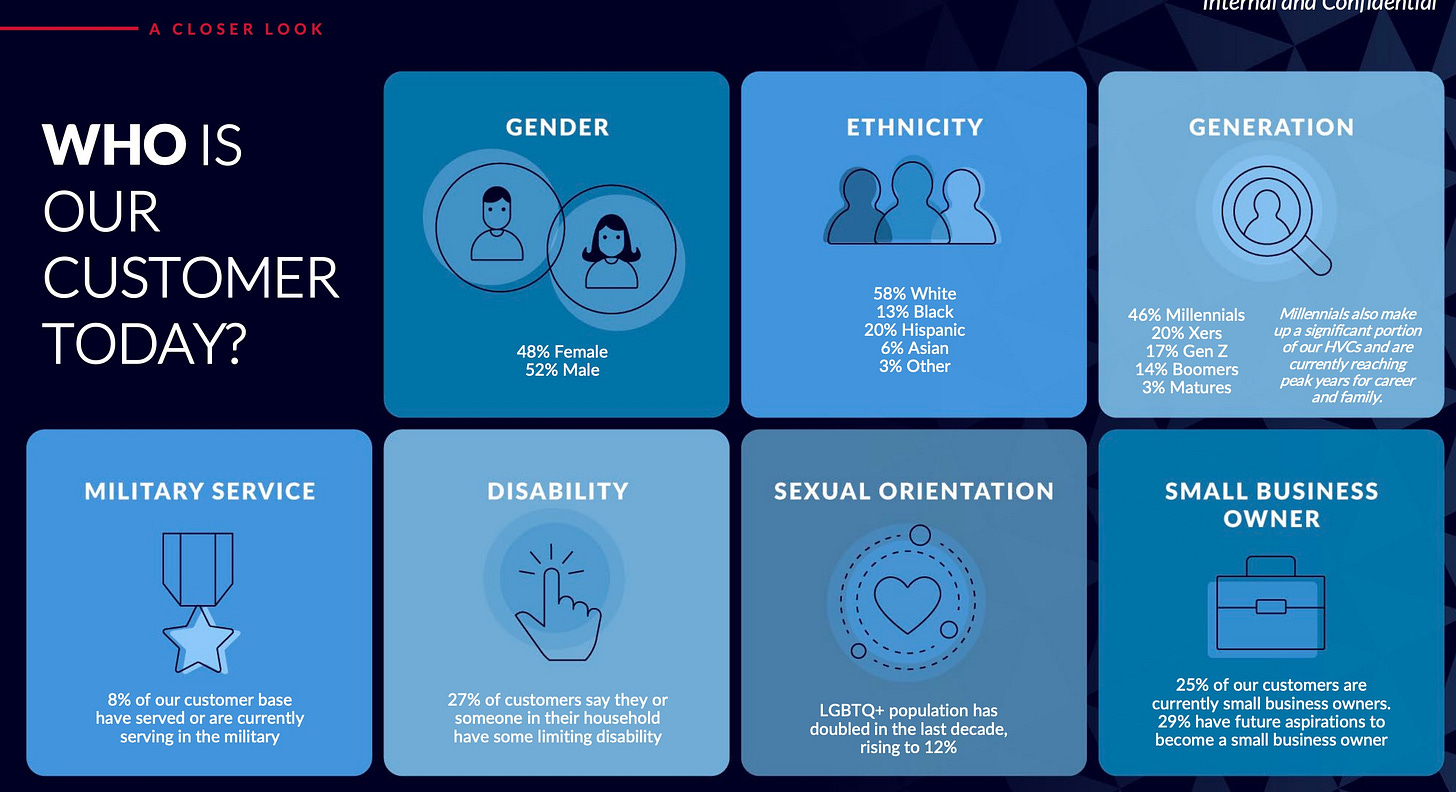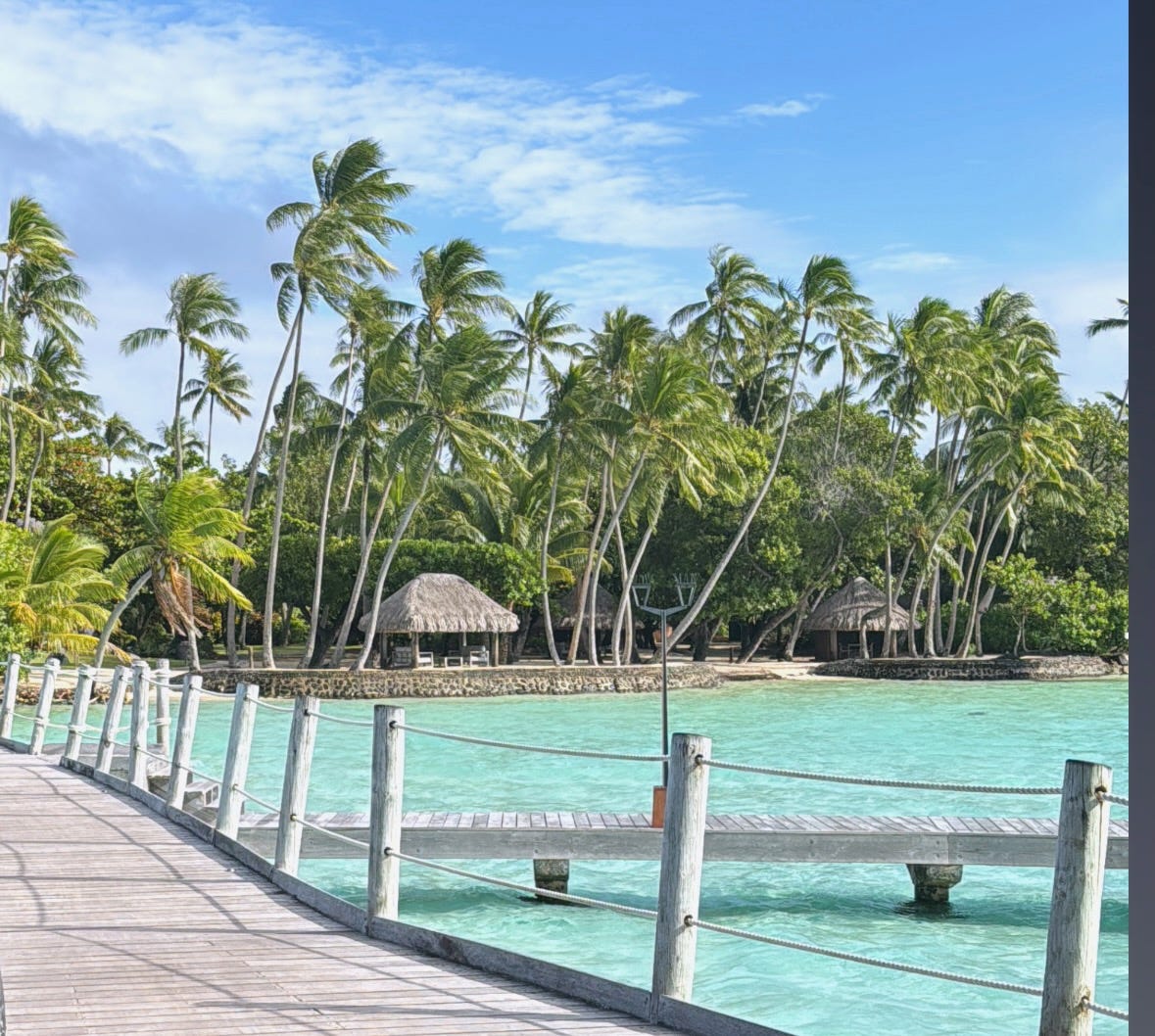As a freelance writer, if you’re passionate about an idea and want a story to come to life, you’ll see it through to the end. That’s what happened with my piece about the Delta gays, a travel and culture essay that published for USA Today last week (by way of The Washington Post). But it took eight months. Here’s how it happened along with the full, unabridged story below.
I wasn’t really planning on writing it.
This all originated from a tongue-in-cheek retweet that included a Grindr screenshot (for the unaware, Grindr is primarily a hookup app for gay men). My editor for The Washington Post at the time saw the tweet and was interested in what I had to say.
In October, the story was greenlit by my editor. From there, I started researching, writing, and interviewing sources. And while The Washington Post decided to pass on my narrative a month later, I didn’t want to just give up on finding it a home.
There are two takeaways from this:
A niche topic can still be worthy of a story; gay men obsessed with Delta were prevalent in my social circles (and adjacent social circles) for years. But a story for a major publication? It never even crossed my mind until my editor wanted to learn more. Stories are hiding in plain sight.
While The Washington Post ended up killing the piece after my first draft, I didn’t just abandon the story completely. I put a lot of time into massaging the piece and interviewing sources; in other words, I was invested! With WaPo’s blessing, I was able to shop it around to other outlets.
Below, you’ll find an extra 1,000 words about the Delta gays. Unsurprisingly, the LGBTQ+ demographics align with where Delta has its hubs and focus cities. And there are a few more queer references — RuPaul’s Drag Race, Austin Wolf (a famous gay porn star), and Sky Club hookups.
Here’s the shortened USA Today story.
Enjoy!
The unabridged story of the Delta gays
When Ben Baxter listens to Viola Davis’s deep yet melodic voice — one that extols the benefits of seeing the world on Delta — he can’t help but be mesmerized. Davis, the iconic Academy Award-winning actress, has been a voice for Delta’s ads on and off since 2017. The latest Viola Davis-led spot premiered last year on Bravo, the network home to Real Housewives and Andy Cohen.
Baxter, who is gay, says Davis’s “slam-poetry-esque monologue” is one of the many reasons why he feels so connected to the airline. “Gay men have an acute sense of identifying and latching onto ‘star quality,’ and that is also so palpable once you set foot on a Delta plane,” he tells me.
Delta’s fleet of aircraft may be older on average than its competitors, but you wouldn’t know that from seeing the inside. Sleek mood lighting, onboard seatback screens, and the quilted navy-blue seat stitching feel modern, and dare we say, sexy.
Baxter belongs to a group known as the “Delta gays,” as I call them. They are a fiercely loyal and very vocal contingent, especially on social media. For years while living in New York and now, Los Angeles, I observed — both in person and online — how Delta became the favored airline in the circles of gay, male-identifying (and predominately upper-middle-class) urbanites.
As a travel reporter, an aviation geek, and a gay man, I wanted to dig deeper into extrapolating this somewhat esoteric relationship. What was Delta doing that other U.S. airlines weren’t? I set out on a mission to answer the age-old question of how Delta has seemingly captured something so elusive in the gay male community: long-term loyalty.
What I ended up finding was that, well, it’s a complicated situationship.
How we got here
Delta’s reputation, seemingly, as the “it girl” gay male carrier is a relatively contemporary development.
Simply put, in the ’90s and early aughts, Delta didn’t particularly resonate with LGBTQ+ travelers. That crown belonged to American Airlines. “American stands out as the most dedicated and consistent of the carriers,” says Mike Wilke, the founder of AdRespect, a site that rates and catalogs LGBTQ+ advertising.
After a controversial AIDS-phobic incident onboard a flight in 1993 and subsequent backlash from the community, American vowed to win back the LGBTQ+ audience. It did so by becoming an official sponsor of several U.S. Pride parades, the first for a major airline.
American also become the earliest U.S. carrier to implement same-sex domestic partner benefits and to include gender identity in its workplace nondiscrimination policies.
However, a major shift transpired in the late 2000s.
As Delta began the process of merging with Northwest Airlines, executives in Atlanta not only wanted to become a much larger carrier but also a better carrier. To market those efforts, Delta brought on an ad agency powerhouse, Wieden + Kennedy, famous for its work with big culture labels like Nike and Coca-Cola.
The agency introduced the “Keep Climbing” tagline still used today. It was at that time Delta started to position itself as a premium, more inclusive, and yes, more progressive airline. And so it began.
Going “premium”
“From a marketing perspective, Delta evolved with the times better than other airlines, including American,” says Ed Salvato, an LGBTQ+ tourism expert and marketing professor at New York University (NYU). “They started doing the promotion to attract the LGBTQ+ audience, but more importantly, they invested in customer satisfaction.”
That investment included major enhancements, like becoming the first U.S. carrier to offer fully lie-flat seats with direct aisle access in business class on all widebody flights.
Delta very much likes to toot its own horn as the “premium” airline. It’s true: Delta built a reputation over the years with rock-solid operational reliability, top-notch service, and better-than-average airport lounges.
Salvato is convinced that the airline’s customer-centric focus is what drew the gays in. “Whether intentional or not, sophisticated gay male travelers were lured in by the association of luxury,” he says
That’s what got Jason Jahn, a New York City-based executive, to become a decade-long Delta loyalist. “I remember being impressed by the all-lie-flat for business class, the operational reliability, and the general service experience being consistent.” Also catching Jahn’s attention? A flight safety video.
“Honestly, it was ‘Deltalina’ when I really gravitated towards the brand,” he noted. Katherine Lee-Hinton, better known as Deltalina, is a flight attendant who was a presenter for Delta’s onboard safety videos in the late 2000s. While Lee-Hinton had widespread appeal for her saucy finger wag (who knew “smoking is not allowed” could be sexy?), she was a particular sensation with the gays.
Delta’s multi-year-long partnership with American Express — which lasts at least through 2029 — is not only lucrative for the airline, but it also parlays a certain high-end image, too. Seems like heavy metal credit cards with lounge access will do that.
The proof in the numbers
While you obviously don’t have to be a gay man to enjoy nice things, there has been a long-held convention that gay men earn more and have more disposable income.
2020 Census data shows the median household income of male, same-sex married couples to be 22% higher than opposite-sex married partners of the same age bracket. These couples are also 23% less likely to have children. The numbers align with a broader story: If a premium image is what you’re selling, those with more money — gay DINKs — are likely to buy it.
And the proof is there: an internal Delta document from January 2024 shows that the airline’s LGBTQ+ customer base has doubled in the past decade, now 12% of total passenger volume.
Finally, when it comes down to it, Delta simply flies to and from places where there are a lot of gay people. If you examine the top 12 metropolitan cities by percentage of the population identifying as LGBTQ+, Delta has either a hub or a focus city — AKA a major presence — in six of the 12 locations, more than any other U.S. airline.
Delta executives declined my request for an interview to talk about their inclusivity efforts, but a spokesperson offered the following statement. “Delta is a proud, long-time supporter of the LGBTQ+ community, and we want everyone to feel welcome when flying with us.”
Still, there have been missteps in recent years. In 2019, the airline censored LGBTQ+ love scenes in its onboard films, only restoring them after anger online.
Delta also lags behind other airlines when it comes to LGBTQ+ rights at work. It scored an 85 in the latest Corporate Equality Index from the Human Rights Campaign; American, Alaska Airlines, and Southwest Airlines all received a perfect 100.
Two Gingers, Drag Race, and Pokemon Go
For the past four years, a Delta ad depicting two ginger-haired men (who we can only assume to be a couple) has been plastered all over jetbridges at Delta hubs nationwide. One is laying their head on the other’s shoulder, as they both watch a video together.
Peter Schlesinger, a Delta loyalist and an associate director of digital based in New York, has a rather unique social media tradition when boarding. “I started taking selfies with the guys [in the ad] when my boyfriend missed our flight so it was a joke about finding new Delta friends instead. And then I just kept doing it.”
In queer pop culture, Delta also has made the rounds. Take, for instance, Las Culturistas, a comedy podcast series hosted by Saturday Night Live’s Bowen Yang and actor-comedian Matt Rogers, both gay men. In each episode, Yang and Rogers declare, in perfect unison, certain statements to be "Rules of Culture." One of those rules, specifically rule number 43, asserts that “Delta is the queen of airlines.”
RuPaul's Drag Race season 7 queens Katya Zamolodchikova and Trixie Mattel have also each proclaimed their devotion to Delta — and Diamond Medallion status — in multiple episodes of their comedy series, UNHhhh.
Meanwhile, a raunchy in-flight encounter with Austin Wolf, a prominent male porn star — and the subsequent video — received widespread attention and took gay Twitter by storm. That Delta employee was subsequently fired, but not before the clip was saved far and wide for future viewing.
Speaking of encounters, the Delta Sky Club is sometimes a magnet for…let’s just say, certain activities. One Delta elite, who doesn’t want to be named, equated “Grindr in a Delta lounge to Pokemon Go.”
A crack in the gay facade?
For what it’s worth, though, Delta’s actual product these days may not be quite matching its luxury image.
“For premium travelers, the airline simply no longer has the edge,” says Ben Schlappig, a travel expert who runs the website One Mile at a Time. “Delta has less legroom in first class than competitors, an uncompetitive business class hard product on [select aircraft], and lines out the door to use many lounges.”
Schlappig, who identifies as gay himself, believes that other major U.S. airlines have narrowed the gap on Delta in terms of operational reliability and service.
Other cracks in the gay facade are also showing: When Delta Air Lines announced elite status changes in the fall, the reaction was swift and fiery. Loyalists were so relentless in condemning the modifications that weeks later, Delta eventually backtracked (slightly). On X, the platform formerly known as Twitter, unsurprisingly to me, there were many profiles with rainbow flags chiming in.
Then, there’s this analogy. A friend and frequent flier once told me that “Delta is like Equinox.” They offer nearly the same products and services as other comparable gyms in a slightly more polished package which gives the illusion of luxury and affluence.
In other words, it may not matter if Delta’s onboard and ground experience isn’t as good as the marketing indicates. Over the past decade, flying Delta has become something of a status symbol. And for gays, status; exclusivity; and community are often enough.
Checking in from French Polynesia,
Chris





